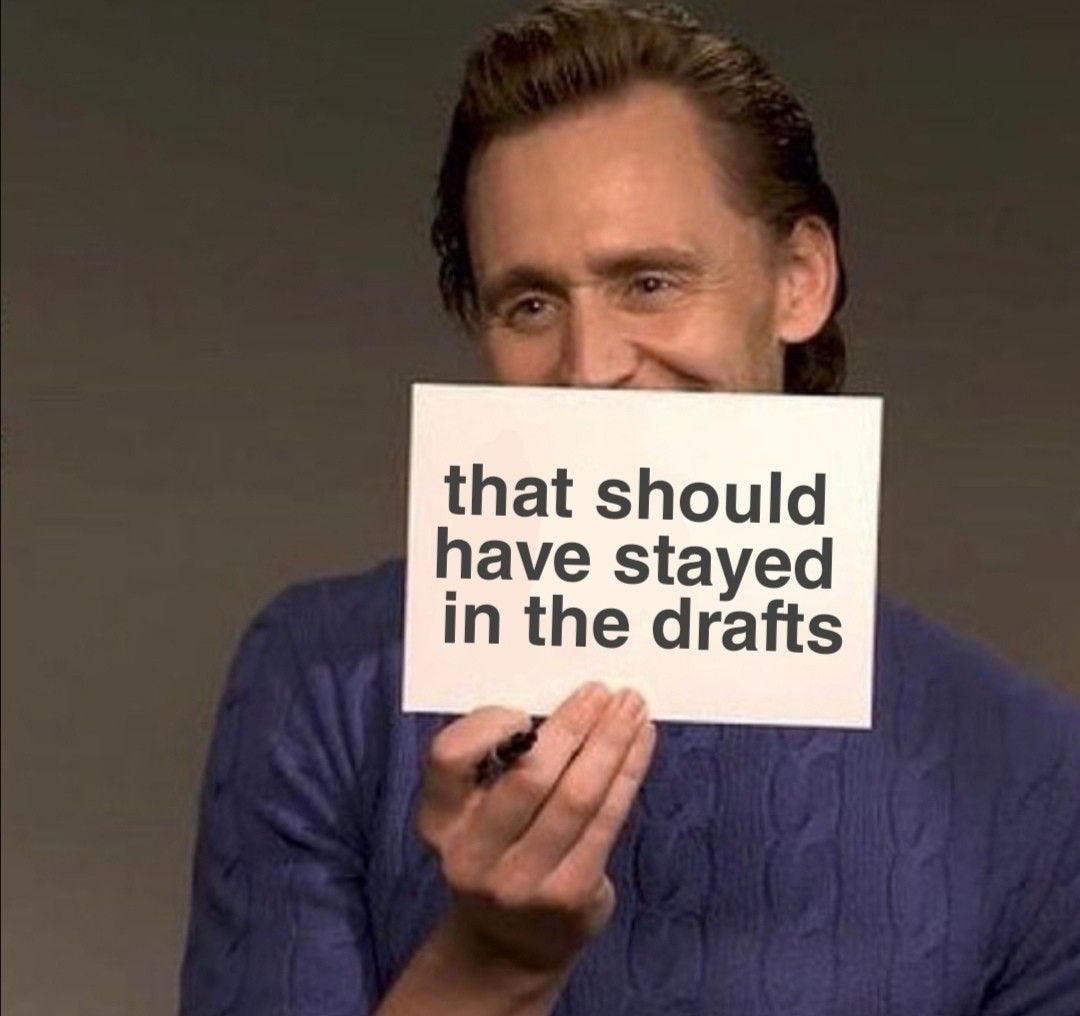As my last post would suggest Husband Material by Alexis Hall was one of my most anticipatory reads for the month of August. When I was starting the book I was sure my review of the sequel probably will be biased because
1) Luc and Oliver were amazing characters that I adored deeply
2) Alexis Hall’s writing NEVER disappoints, I’d always find myself snorting and laughing in the fuggliest way possible because of how funny and witty his writing is.
But this sequel crushed my heart into pieces.
Husband Material was a tiresome combo of bickering and fighting with no hilarity or character development. The few moments of delight are quickly snuffed out by another round of misunderstandings, Luc being petty, downright rude, and creating unnecessary arguments and drama, and Oliver striving to please and be polite. They don't learn, they don't communicate, and they don't solve problems.
Also, I will never find any joy in rainbow balloon arches anymore.
Of course, there is no such thing as the "correct" way to be homosexual, but a balloon arch? Also, the fact that Luc made Oliver feel that there is something wrong with him just because he is not the same gay the same way Luc is was downright sickening. And the fact that he was glad because at least he is not the “problem” this time Oliver is when Luc was genuinely a walking red flag. Following all of this upheaval, I had to ask myself, what was the point of the story because the primary conflict was not developed and also seemed meaningless, Oliver wasn’t even there in most of the book and Luc was an absolute inconsiderate ass.
Somehow every character was funny, witty, and lovable except these two.
I know the book was supposed to replicate what happened at the end of Four Weddings and a Funeral, much as the book's structure mirrors the structure of the film. But duplicating a movie's ending ain’t it until it works for the story and characters too. Rather than using the other weddings and the funeral to look into the factors that lead to the ultimate conflict between our leads, as well as the character motivations that allow the conflict to be resolved, Hall utilizes Parts 1-4 to cover completely other subjects. And the ending didn’t work with the four parts at all.
By far the worst example is Luc's attitude toward Oliver's eating disorder. When Luc notices Oliver's reluctance to remove his clothes, he thinks,
"I tried to be sensitive to Oliver's body image issues, I really did. But, at the end of the day, he looked like him and I looked like me, and sometimes it was hard to remember that when he was being down on himself, he wasn’t being down on me by association.”
He also rationalizes Oliver's insecurities (accepting them as valid is too much to ask) by pointing out that Oliver isn't as fit as he once was because
"the problem with giving yourself an eating disorder in pursuit of an impossible beauty standard was that if you got rid of one, you got rid of the other."
In other words, Luc believes he can accept Oliver's insecurities since they aren't about him, and they're also factually right because Oliver's body is less appealing now.
Luc's selfishness extends to his proposal to Oliver. He proposes because he is insecure and concerned about what it means to live together and because everyone around him was getting married. He asks the question without hesitation, although he and Oliver have clearly never discussed marriage before. It’s also weird how neither of them seemed opposed to the concept of them getting married for most of the book and even by the end was hoping they’d clear the doubts and everything but noPe.
“Her name was Ana with one n, and he said he’d met her ‘on the social media.’ Given that like many of Rhys’s dates she was bizarrely hot and carried herself in a way that suggested she had incredible body confidence, I suspected he’d met her on one social medium in particular.”
Rhys had earlier implied that he is on OnlyFans so this assumption was clearly a reference to that. Assuming that just because a woman is attractive and self-assured that she is a sex worker is wrong.
Some books are better left standalone and







